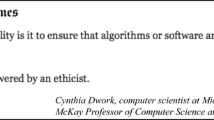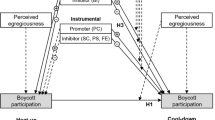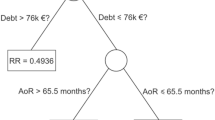Abstract
Recently there has been an outpouring of consumer frustration over rising food and energy prices. Many politicians railed against “speculators” who allegedly drove up the prices of key necessities. Is speculation unethical? This article reviews the traditional arguments against speculation. Many of the standard criticisms confuse speculation with gambling. In much the same way as ethicists now draw distinctions between usury and normal business interest, we draw a distinction between socially useful speculation and gambling. Gambling involves taking on risk with no plausible expectation of making a profit. Gambling may provide entertainment value to some people, but like other addictive activities causes grave harm to a subset of users. Speculation involves taking on a business risk with a plausible expectation that a profit will result. Speculators provide an important risk bearing service by taking on risks that others do not want. They help markets to function better by helping to incorporate information into prices as well as providing liquidity. Speculators may actually reduce shortages by causing quicker price increases that motivate producers to increase production and consumers to conserve. But even socially useful speculation may have an ethical dark side. Does such speculation cause damage by adding excess volatility to prices? Speculators may contribute to price bubbles. At what point does legitimate speculation become odious “price gouging?” We also draw an ethical distinction between speculation, which seeks to benefit from changing prices, and manipulation, actions taken to push prices away from their economically appropriate levels.
Similar content being viewed by others
References
Aristotle: 1981, The Politics, trans. Thomas Alan Sinclair (Penguin Classics, New York), p. 90.
Benedict XVI: 2008, ‘Angelus’, http://www.vatican.va/holy_father/benedict_xvi/angelus/2008/documents/hf_ben-xvi_ang_20080706_en.html.
Borna, Shaheen and James Lowry, 1987, Gambling and Speculation, Journal of Business Ethics 6 (3), 219-225.
Chancellor Edward (1999) Devil Take the Hindmost: A History of Financial Speculation. Farrar, Strauss, and Giroux, New York.
Clotfelter Charles T., 1989, Selling Hope: State Lotteries in America. Harvard University Press.
Coyne, Michael P., and Janice M. Traflet, 2008, Ethical Issues Related to the Mass Marketing of Securities, Journal of Business Ethics 78(1-2), 193-198. DOI 10.1007/s10551-006-9319-7.
Ferguson Niall (2008) The Ascent of Money A Financial History of the World. Penguin Press.
FINRA: 2008, FINRA Manual, Rule 2310, http://finra.complinet.com/en/display/display_main.html?rbid=2403&element_id=3638. Accessed 12 Jan 2008.
Friedman, M., 1953, The Case for Flexible Exchange Rates. in: Friedman, M (ed) Essays in Positive Economics. University of Chicago Press, Chicago
Geisst Charles R. (2002) Wheels of Fortune: The History of Speculation from Scandal to Respectability. John Wiley and Sons.
Jacks, David S., 2007, Populists versus theorists: Futures markets and the volatility of prices, Explorations in Economic History 44 (2007) 342–362.
Kaldor, Nicholas, 1939, Speculation and Economic Stability, The Review of Economic Studies, Vol. 7, No. 1 (Oct., 1939), pp. 1-27.
Kindleberger, C. P and R. Aliber: 2005, Panics, Mania, and Crashes: A History of Financial Crises, Wiley Investment Classics (John Wiley).
Kristof, N.: 1986, ‘Clerk Accused of Poisoning Drugs to Make Money in Stock Market’, New York Times May 31.
Lahart, J.: 2007, ‘Housing Bubble: Toil and Trouble Follows Predictable Pattern’, Wall Street Journal March 6
Mackay, C.: 1995, Extraordinary Popular Delusions & the Madness of Crowds. Three Rivers Press, New York.
Malkiel, B.: 2008, A Random Walk Down Wall Street (W. W. Norton & Company, New York).
Nelson, Benjamin, 1969, The Idea of Usury: From Tribal Brotherhood to Universal Otherhood. University of Chicago Press.
Nider, J.: 1966, On the Contracts of Merchants (De Contractibus Mercatorum), trans. Charles H. Reeves (University of Oklahoma Press)
Nofsinger, John R.,2007, The Psychology of Investing. Third edition. Prentice Hall.
Ryan, John A., 1902, The Ethics of Speculation, International Journal of Ethics, Vol. 12, No. 3 (Apr., 1902), pp. 335-347.
Slater, T.: 1912, ‘Speculation’, in C. G. Herbermann et al. (ed.), The Catholic Encyclopedia: An International Work of Reference on the Constitution, Doctrine, Discipline, and History of the Catholic Church, Vol. 14 (The Encyclopedia Press, Inc., New York), pp. 212–213.
Time: 1956, ‘Odorous Onions’, Time July 2, http://www.time.com/time/magazine/article/0,9171,891311,00.html.
United States Congress: 1957, Onion Futures Trading: Hearing, Eighty-fifth Congress, First [-second] Session, on S. 778 and S. 1514 (Committee on Agriculture and Forestry, U.S. Government Printing Office).
Author information
Authors and Affiliations
Corresponding author
Rights and permissions
About this article
Cite this article
Angel, J.J., McCabe, D.M. The Ethics of Speculation. J Bus Ethics 90 (Suppl 3), 277–286 (2009). https://doi.org/10.1007/s10551-010-0421-5
Published:
Issue Date:
DOI: https://doi.org/10.1007/s10551-010-0421-5




